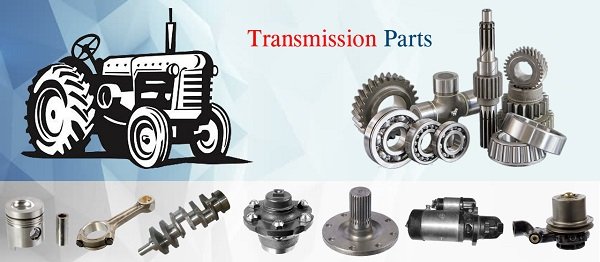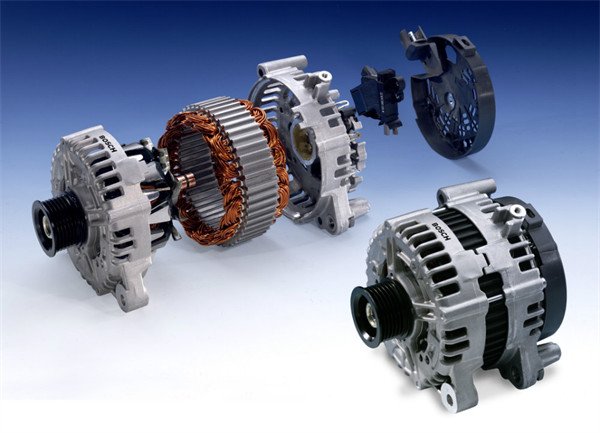Farming is the backbone of agriculture, and the equipment used on farms plays a crucial role in ensuring crops are planted, tended, and harvested efficiently. Among the most vital pieces of machinery on any farm is the tractor. Tractors are the workhorses that help farmers with everything from plowing and planting to harvesting and transporting. However, the efficiency and longevity of these machines depend on the quality and maintenance of their parts. In this article, we’ll explore the key tractor parts that contribute to the machine’s overall performance and how proper care can help maximize its efficiency.
Understanding the Anatomy of a Tractor
Tractors are highly specialized machines designed to perform a wide range of tasks on the farm. From turning soil to hauling heavy loads, each tractor is made up of several critical components that ensure smooth operation. Let’s break down some of the essential tractor parts that contribute to its overall performance:
- Engine: The heart of any tractor, the engine powers the machine and provides the necessary torque to move heavy implements. Tractors often have diesel engines for their efficiency and durability under demanding conditions.
- Transmission: The transmission system controls the tractor’s speed and direction. It allows farmers to switch gears depending on the task at hand, whether it’s driving across fields or maneuvering through tight spaces.
- Hydraulic System: Tractors use hydraulics to operate implements such as plows, loaders, and mowers. The hydraulic system provides the power needed to raise, lower, or adjust these tools.
- Wheels and Tires: The wheels and tires are crucial for providing traction and stability on uneven or rough terrain. Larger tires are typically used for heavy-duty tractors that need to carry significant loads or work on challenging landscapes.
- Steering System: The steering system allows the operator to control the tractor’s direction. It is essential for maneuvering the tractor efficiently in the field and around obstacles.
- Braking System: A reliable braking system is crucial for safety, especially when operating a tractor in areas with steep inclines or heavy loads.
- Power Take-Off (PTO): The PTO is a key component that transfers power from the tractor’s engine to implements such as mowers, tillers, and harvesters. This allows farmers to perform various tasks without needing additional power sources.
Why Tractor Parts Matter
The performance of a tractor is directly linked to the quality and condition of its parts. Properly maintained parts ensure that the tractor runs smoothly, operates at peak efficiency, and minimizes downtime. Here’s why tractor parts are so important:
- Maximized Efficiency: Well-maintained parts reduce energy loss, allowing the tractor to work more efficiently. For example, a properly tuned engine uses fuel more effectively, reducing operational costs.
- Longevity: Tractor parts that are regularly serviced and replaced when necessary extend the life of the machine. A small issue in one part, if left unchecked, can lead to bigger problems that result in costly repairs.
- Safety: Faulty parts, such as the braking or steering system, can pose serious safety risks. Regular inspections and maintenance prevent accidents and ensure the tractor remains safe to operate.
- Reduced Downtime: When a tractor part fails, it can cause unexpected downtime. Having spare parts readily available and maintaining the parts in good condition helps farmers avoid long periods of inactivity and loss of productivity.
Common Tractor Parts That Need Attention
While tractors are designed to be durable, certain parts require regular attention to maintain optimal performance:
- Air Filters: Tractor engines depend on clean air to operate efficiently. Over time, air filters can become clogged with dust and debris, reducing engine performance. Regular replacement of air filters ensures the engine runs smoothly.
- Fuel System: The fuel system is critical for delivering clean fuel to the engine. Clogged fuel injectors or a dirty fuel filter can hinder engine performance and lead to starting issues.
- Belts and Chains: Tractors use belts and chains to transfer power between components, such as the engine, transmission, and PTO. These parts can wear down over time and need to be replaced to prevent breakdowns.
- Batteries: The tractor battery is essential for starting the engine and powering electrical systems. Ensure the battery terminals are clean and free of corrosion, and replace the battery when necessary.
- Cooling System: Overheating is a common issue in tractors due to the intense workload. The cooling system, including the radiator and hoses, helps prevent the engine from getting too hot. Regular checks and coolant changes are essential.
- Tires: Tractor tires are subject to wear and tear, particularly when working in rough terrain or with heavy loads. Inspecting tires for cracks, low tread, or damage can prevent costly repairs or accidents.
- Hydraulic System: Hydraulic parts, such as hoses, pumps, and cylinders, are subject to wear and can become damaged from frequent use. Keeping the hydraulic fluid levels topped up and inspecting components for leaks ensures the system works efficiently.
Maintaining Your Tractor Parts

Regular maintenance is key to ensuring that your tractor’s parts remain in good working order. Here are some tips for keeping your tractor in top condition:
- Follow the Manufacturer’s Maintenance Schedule: Every tractor comes with a recommended maintenance schedule. Follow this to ensure that all parts are inspected and serviced at the right intervals.
- Check Fluid Levels: Make sure to regularly check oil, coolant, hydraulic fluid, and fuel levels to keep the tractor running smoothly.
- Replace Worn Parts: Don’t wait for a part to completely fail before replacing it. Regularly inspect and replace parts like filters, belts, and tires to avoid larger issues.
- Store the Tractor Properly: If your tractor is not being used for extended periods, store it in a dry place and cover it to protect it from the elements.
Conclusion
Tractor parts are the backbone of farm equipment performance, and taking care of them ensures that your tractor runs at peak efficiency. By understanding the role and maintenance needs of key tractor components, you can maximize the performance and lifespan of your machine. Investing in high-quality parts and regular upkeep will keep your tractor running smoothly, helping you achieve success in your farming operations.




